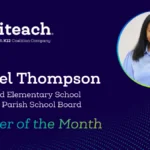Originally Posted by our other division Learners Edge on Feb 5, 2016 1:00:00 PM
Black history and culture is such a part of the American fabric. It provides a great opportunity for students to explore and learn more about a variety of issues. Established as Negro History Week in the 1920s by Carter G. Woodson, February was chosen for the celebration because Frederick Douglass and Abraham Lincoln were born in this month. Extended to a month-long celebration in 1976, Black History Month is an opportunity to emphasize the history and achievements of African Americans. But too often, Black History Month gets relegated to a couple of lessons and some wall art that only stays up for a couple of weeks. There are several ways for teachers to increase the impact of Black History lessons on students. Below are some do’s and don’ts of teaching Black History Month.
(From the Teaching Tolerance website; www.Tolerance.org adapted from material by Pat Russo of the Curriculum & Instruction Department at SUNY Oswego.)
Do…
- Incorporate black history year-round, not just in February. Use February to dig deeper into history and make connections with the past.
- Continue Learning. Explore how to provide an in-depth and thorough understanding of black history. What textbooks include is limited, so use the textbook as one of many resources, but be sure to explore multiple resources and allow for opportunities to learn along with your students.
- Reinforce that “black” history is American history. Make black history relevant to all students. We do ourselves and the next generation a disservice when we do not treat them as both.
- Connect issues in the past to current issues to make history relevant to students’ lives. Making the subject matter relevant to student’s lives drives the point of a lesson home.
- Include the political and social context of the community’s struggle for social justice. For example, talk about Daisy Bates’ political affiliations and her political ideologies. You see her bravery not as just a personal act but as coming out of community determination.
DO NOT…
- Stop your “regular” curriculum, to do a separate lesson on Rosa Parks, on the Civil Rights Act or on Martin Luther King Jr. This trivializes and marginalizes anything you are teaching, making these leaders a token of their culture and ethnicity. Students will get the message that the diversion it is not as important as the “regular” curriculum.
- Focus on superficial cultural traits based on stereotypes. It’s okay to celebrate black music, but teachers should also explore the political and social contexts that give rise to musical forms like hip hop.
- Talk about black history in solely “feel-good” language, or as a thing of the past. This fails to help students examine how racism manifests itself today. Be sure to draw connections between how events or people’s actions in the past affect society today.
- Limit the presentation to lectures or reading. Be sure to allow students an opportunity for discussion and reflection.
- Shy away from controversial, ambiguous, or unresolved issues. Share the real-life experiences about racial realities in developmentally appropriate ways.
- Think that you can’t talk about black history because you’re a white educator. You do not need to be a person of color to talk about race. But you do need to be comfortable in your own skin, build your knowledge about the topic and be in alliance with educators of color for support and feedback.
- Don’t simply focus on the famous people. Use Black History Month as an opportunity to highlight the often-unacknowledged contributions that people of color make every day.
DO visit the Teaching Tolerance website and other websites below for support, ideas, and grade-level appropriate lessons and curriculum for Black History and more!
Additional Resources:
Education World: Celebrate Black History Month
Edutopia: 6 Teaching Tools for Black History Month
National Education Association: Black History Month Lessons & Resources (broken down by grade level)
National Endowment for the Humanities: EDSITEment’s Guide to Black History Month Teaching Resources.
National History Education Clearinghouse: African American History Month
Topics: Teaching Advice
Learners Edge is passionately committed to providing you with continuing education coursework, materials, and tools that will help you succeed in your classroom and in your career.
Offering more than 100 print-based or online courses for teachers, you can earn the graduate credit you need for salary advancement and meet your professional development needs. Contact us today to get started!
Become a Teacher. Change Lives.
If you are passionate about impacting the world around you there are few places where you can influence the future as much as a teacher. Teachers have the ability to build students up and set them on a positive course that can have a ripple effect for future generations.
If you are interested in becoming a teacher, check out our online teacher certification program and you could be teaching in a matter of weeks.





